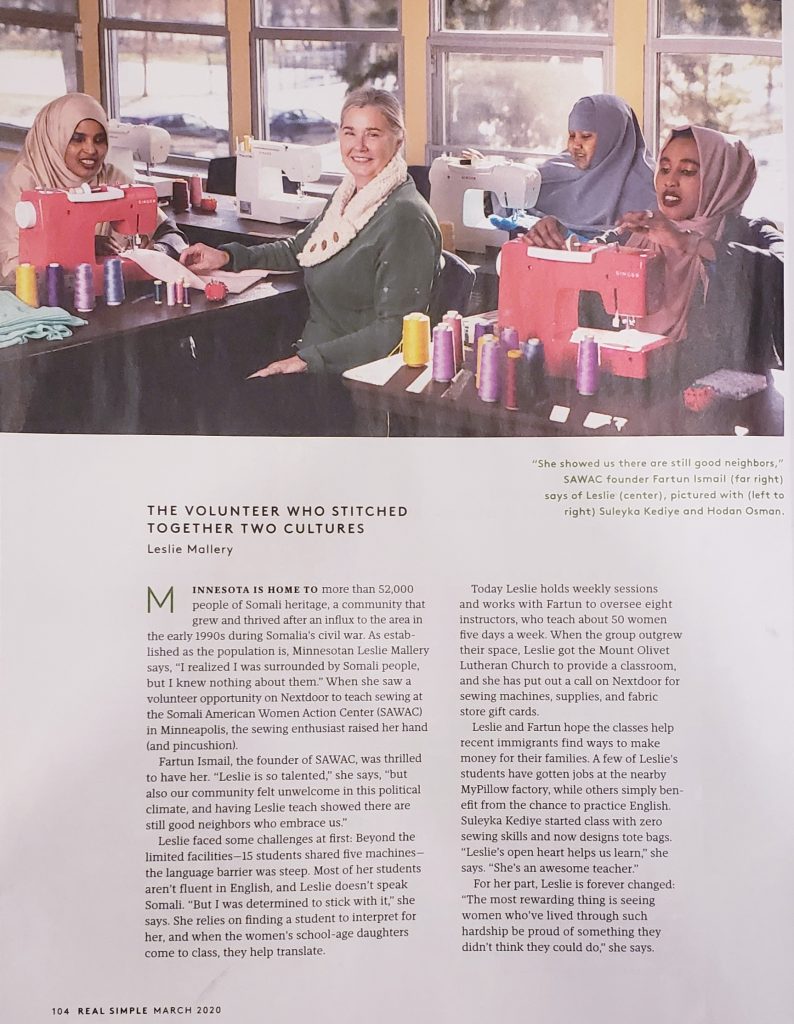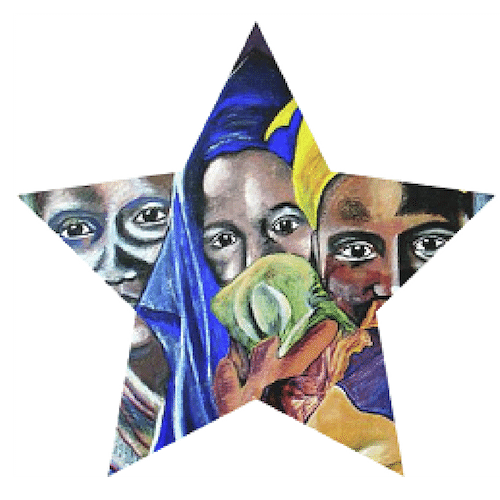MEDIA/NEWS
SEW HIJAB NOT HATE
MINNEAPOLIS (FOX 9) – An event in the Twin Cities highlighted the discrimination women who wear hijabs face in America, while also working to promote acceptance.
The Somali American Women Action Center (SAWAC) in Minneapolis hosted the “Sew Hijab, Not Hate” event on Saturday. Organizers, who represent immigrant and refugee women living in the Twin Cities, invited people of different backgrounds to join the event.
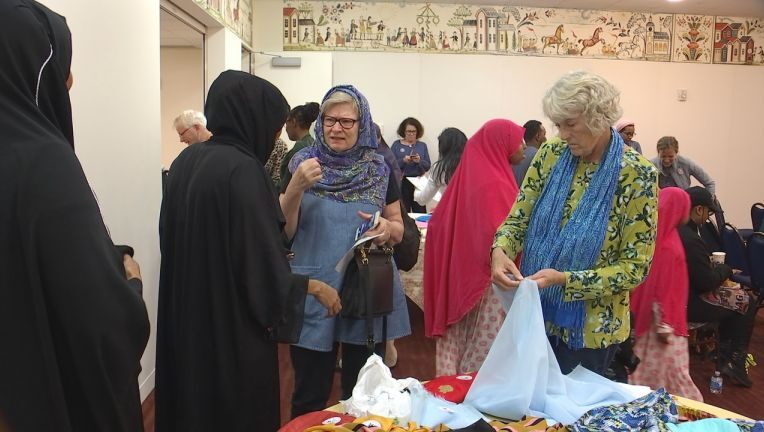
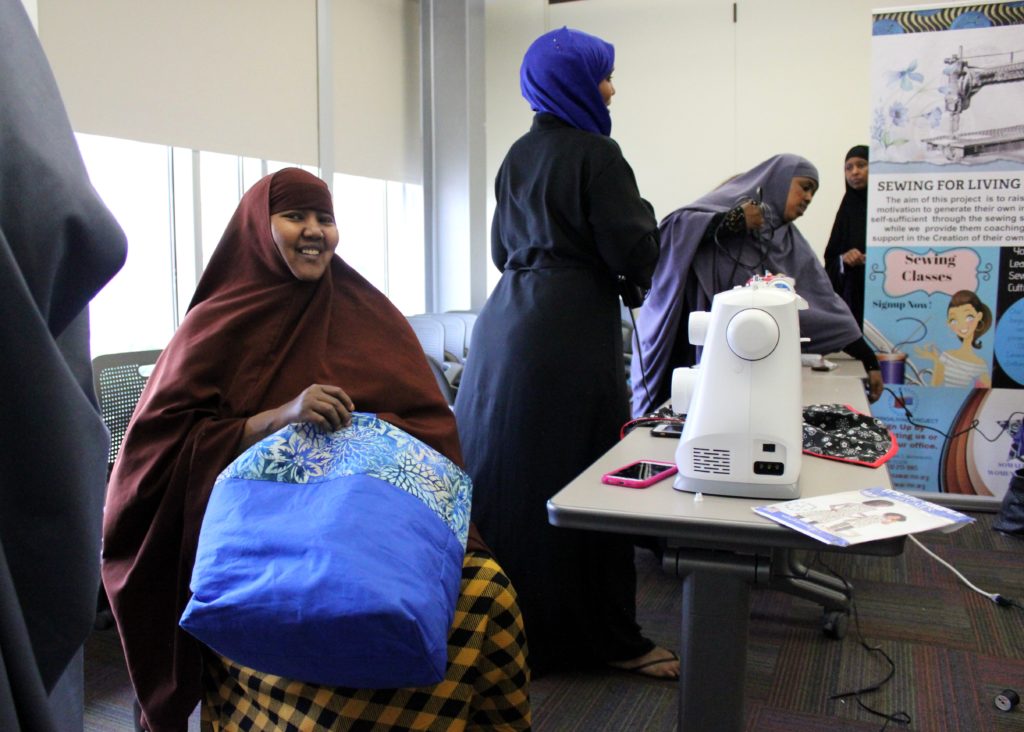
SEWING FOR LIVING PROJECT
Southwest Journal – Men dominate sewing and tailoring businesses in Somali culture, says Fartun Ismail. So if a woman at Karmel Mall can learn to sew and add a tailoring service to her store, that’s a big deal. “They learn how to sew, we give them machines, and they started preparing people’s clothes in their store,” she said. “And they’re making really good money.”
Great Neighbor Award
Real Simple Magazine – When Minnesotan Leslie Mallery signed up to teach a sewing class at the Somali American Women Action Center, she had no idea the effect the class would have on her (or her students). Minnesota is home to more than 52,000 people of Somali heritage, a community that grew and thrived after an influx to the area in the early 1990s during Somalia’s civil war.
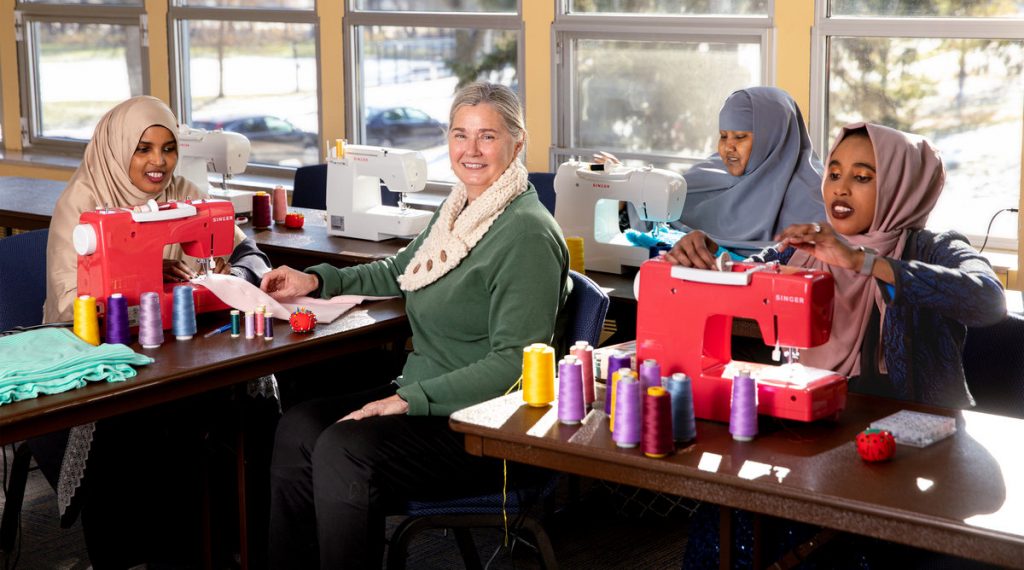
'Sew Hijab, Not Hate' highlights bullying Twin Cities women face when wearing scarfs
MINNEAPOLIS (FOX 9) – An event in the Twin Cities highlighted the discrimination women who wear hijabs face in America, while also working to promote acceptance.
The Somali American Women Action Center (SAWAC) in Minneapolis hosted the “Sew Hijab, Not Hate” event on Saturday. Organizers, who represent immigrant and refugee women living in the Twin Cities, invited people of different backgrounds to join the event.
‘Sew Hijab, Not Hate’ highlights bullying Twin Cities women face when wearing scarfs
An event in the Twin Cities highlighted the discrimination women who wear hijabs face in America while also working to promote acceptance.
At the center, visitors were encouraged to wear a hijab — either purchased or sewn at the event — and wear it for a photo. The organizers then asked participants to share the photo online with the hashtag “SewHijabNotHate.”
“We want to educate those people who are out there who may not know what this is,” explained Fartun Ismail, who helped organize the event, referencing a hijab. “This is a hijab. It is just a small scarf that you can be friendly with. You can cover up. You can cuddle. It’s nothing. It doesn’t carry anything. It just carries respect and modesty with a woman who just wants to cover her hair. Simple.”
The event was hosted by the Somali American Women Action Center. Organizers also gave out free handmade scarves for women to take home after the event.
SOUTHWEST JOURNAL
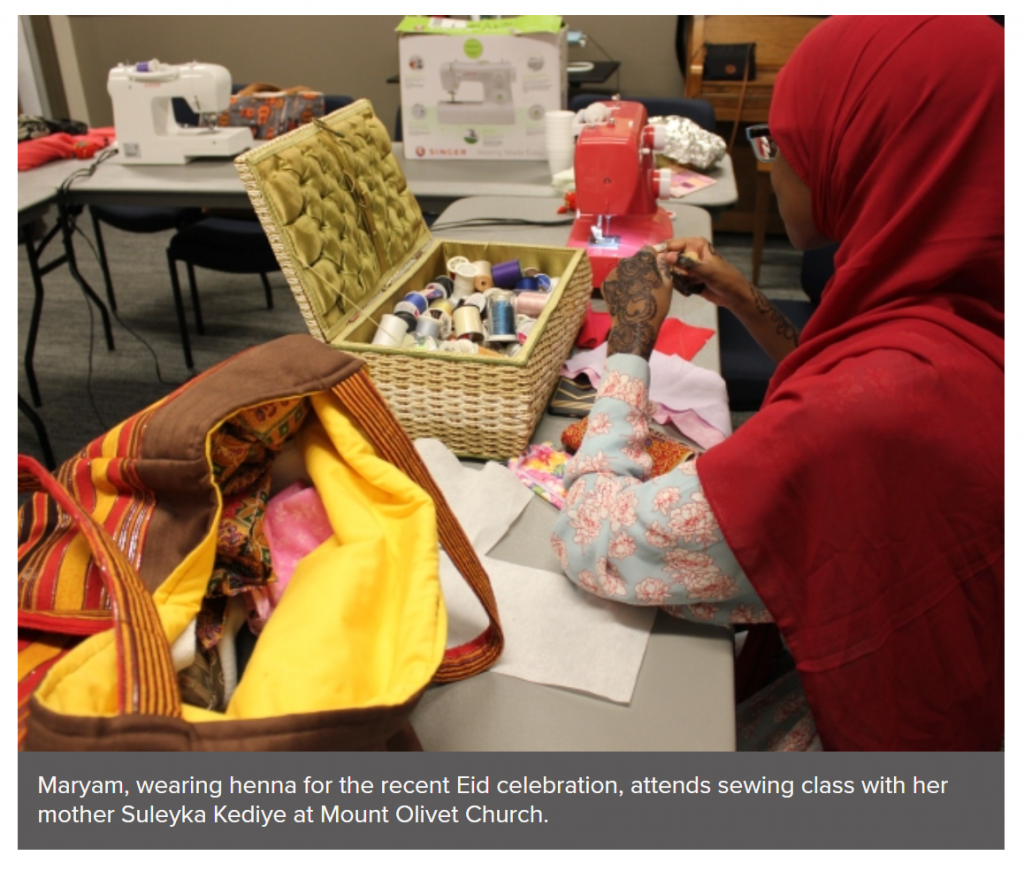
Men dominate sewing and tailoring businesses in Somali culture, says Fartun Ismail. So if a woman at Karmel Mall can learn to sew and add a tailoring service to her store, that’s a big deal.
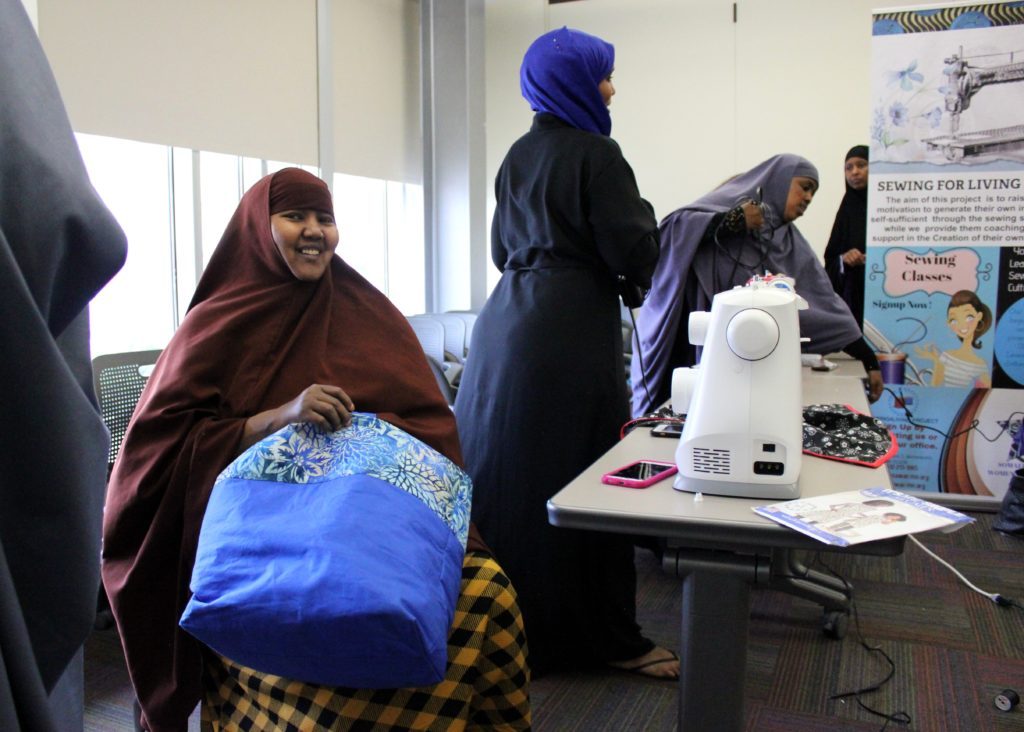
Hodan Osman, pictured with a tote bag she made in sewing class. Mother of six, she joined class with the hope of finding flexible employment.
“They learn how to sew, we give them machines, and they started preparing people’s clothes in their store,” she said. “And they’re making really good money.”
Ismail founded the Somali American Women Action Center (SAWAC), a program that teaches women to sew. She came up with the idea after interviewing women at Karmel Mall.
“They are struggling with so many challenges: language, childcare, transportation. It makes them unavailable for jobs,” said Ukasha Dakane, who partners with Ismail and runs a nonprofit focused on Somali youth and employment. “With sewing skills, they can work on their own projects from home and get paid.”
Their challenges remind Ismail of her own mother’s work raising five children and serving as breadwinner. Her mother started a grocery store at the refugee camp where they lived in Kenya.
“I’ve seen her struggle,” Ismail said.
Her program is now in its third year, and about 20 women attend weekly sewing classes at sites including the Whittier Clinic, Mount Olivet Church and Southdale YMCA.
The organization is planning a campaign for “hijabs, not hate” this fall at Mount Olivet, aiming to raise awareness about what a hijab is and how to wear it. “See it as a scarf,” Dakane said.
Sewing instructor Leslie Mallery said she started volunteering with the sewing program after seeing a Nextdoor post. “I realized there are a lot of Somalis in the community and I knew nothing about them,” she said.
She tries to learn a new Somali word each week and teach an English word in exchange — one word was “oops.” She’s found that words like “bobbin” and “presser foot” have no Somali equivalent.
“It’s a lot of hands-on demonstrating,” she said.
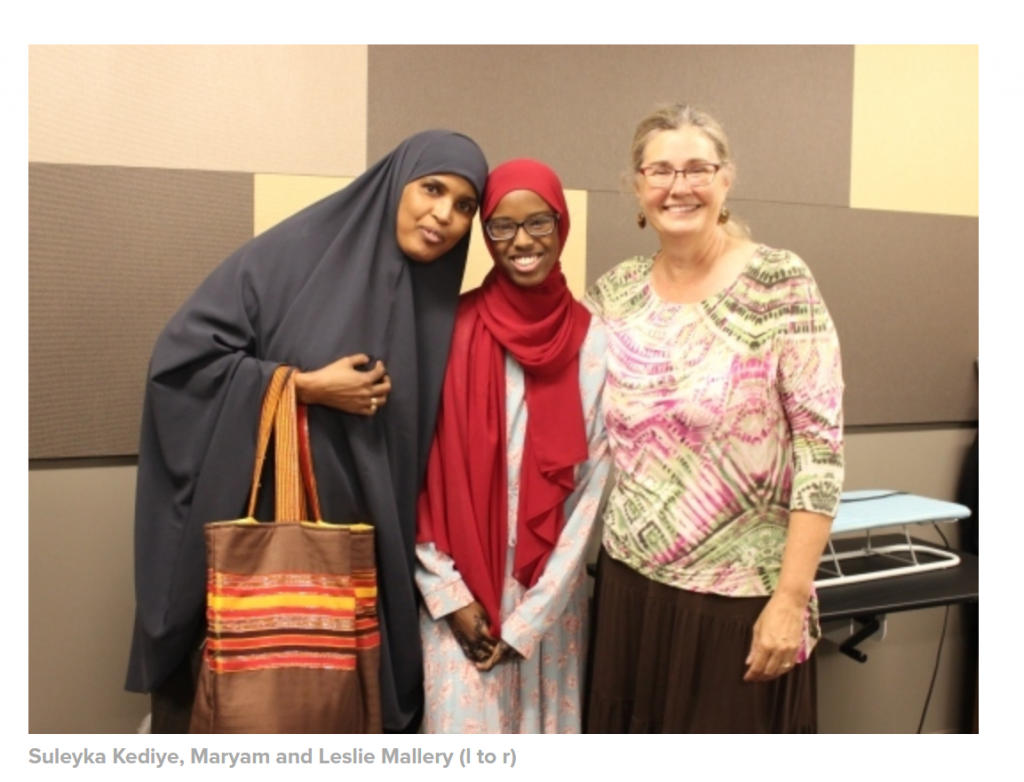
For Mallery’s birthday in August, Suleyka Kediye brought mint tea and her famous chicken sambusas to class (friends urge her to go into the restaurant business). Kediye said she’s enjoyed learning to make dresses for fun. The same is true for Suad Ali, who works as a nurse.
“It feels different when I do my own than when I buy it,” she said.
Susannah Duly, who works as a geologist and teaches classes on Saturday mornings at Whittier Clinic, scoured the Internet to find patterns for a hijab or a traditional Somali dress. Finding none, she asks women to bring in a favorite dress. They turn it inside-out to see how it’s made.
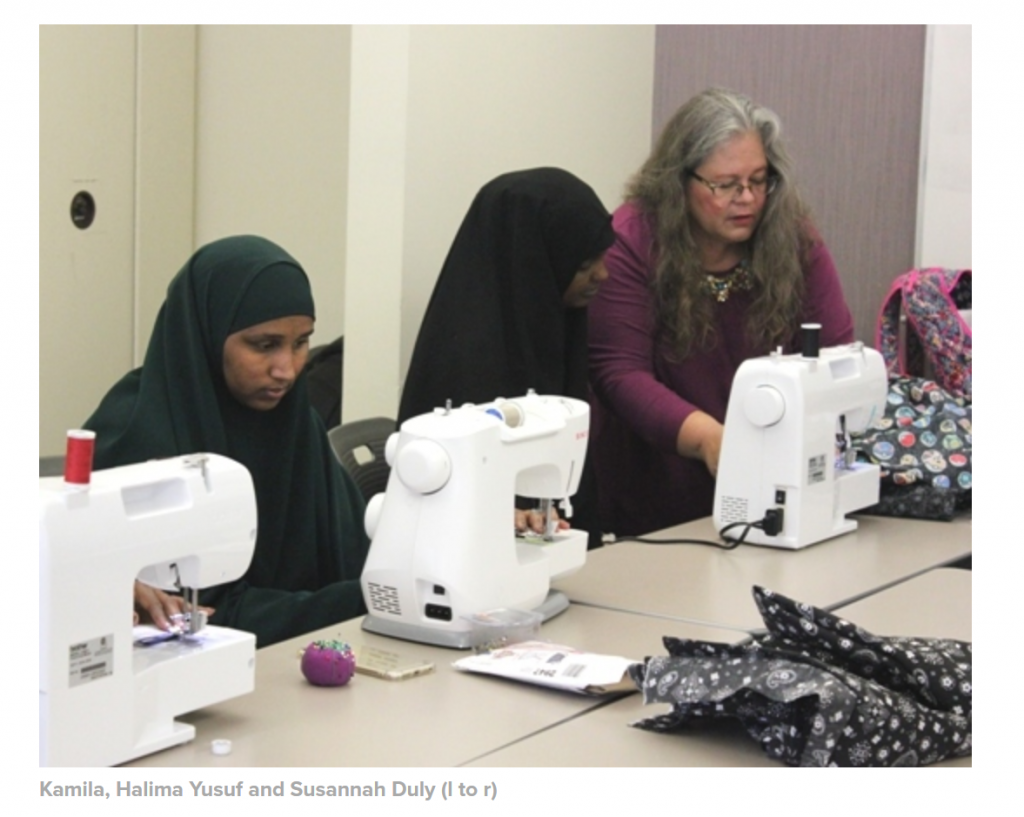
Special occasions like weddings and baby showers require formal wear for adults and children, and while the garments are simple to sew, they can be expensive, Dakane said. Estar Gele arrived at a recent Whittier class wearing a dress she made, and her friends estimated she saved $40 by sewing it herself.
Volunteers are collecting fabric donations from neighbors and occasionally purchasing supplies out-of-pocket. After an unsuccessful request for $250,000 in funding from the state, the group is looking for more volunteers, help with business outreach and donations of money, classroom space, storage space, fabric or equipment.
“If they are cleaning out their grandmother’s attic, we’re happy to take anything,” Duly said.
Seeking state funding, group members testified in April at the Minnesota House of Representatives Jobs and Economic Development Finance Division. Rep. Hodan Hassan (DFL-62A) said she supports women becoming self-sufficient and entering the workforce, but she questioned the wisdom of teaching sewing, a trade that she said is often done in factories and outsourced to China.
In response, Dakane said the group has already partnered with small businesses. The organization previously secured sewing jobs for women at Project Regina and MyPillow, although they said neither company is hiring at the moment.
Rep. Mohamud Noor (DFL-60B) spoke in support of the program, saying that women make up more than 60% of the workforce in the East African community.
Hodan Osman said she joined the sewing class with the hope of starting her own business or finding a flexible job. She’s mother to six kids ages 8–16, and she said it’s been hard to find flexible work.
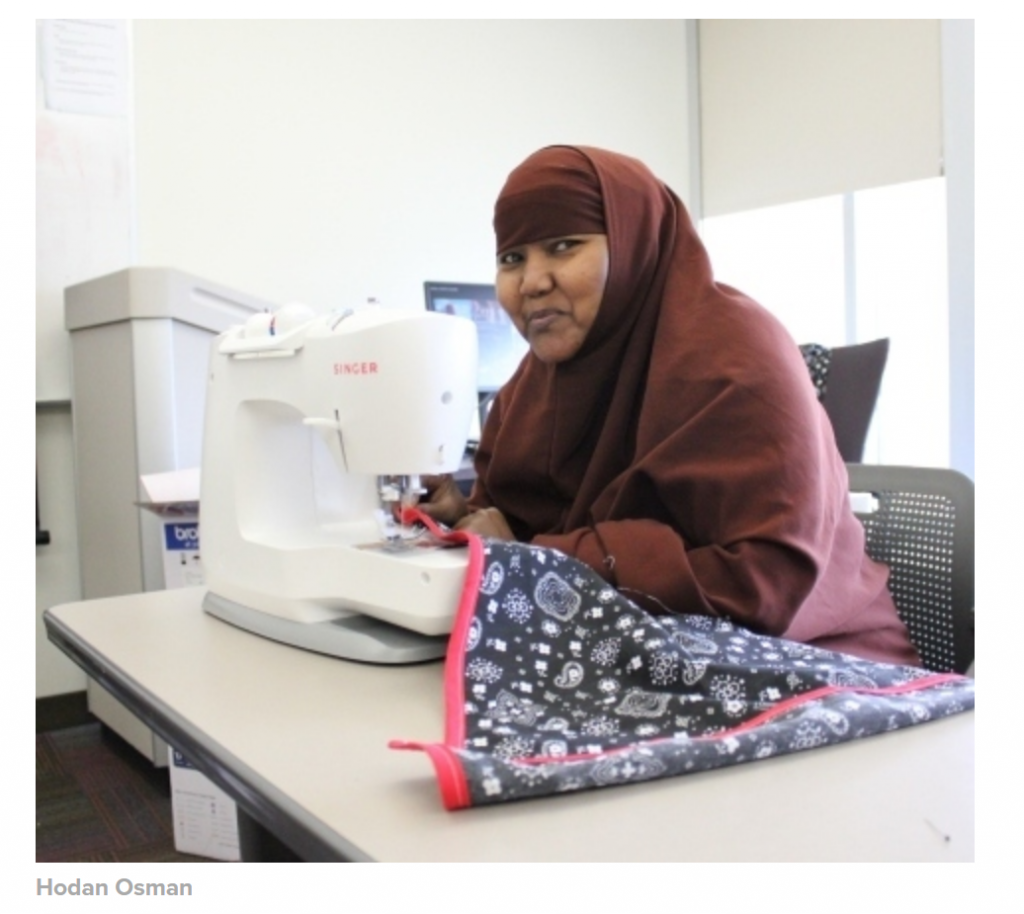
“I have a passion to go into this kind of career,” she said through a translator, explaining that clothing design was a hobby when she was young. Now she’s making dresses, hijabs, baby towels and pajamas, and she’ll start teaching Sunday sewing classes at the Southdale YMCA.
“I need to share what I’ve learned with other women,” she said. “Women need to learn these kinds of skills.”
SAWAC instructors have also taught “Sewing 4 Living” classes at Karmel Mall, Phillips Community Center and Wellstone International High School, as well as classes in Faribault. They sell the results of their projects at the Whittier Farmers Market, Bloomington Farmers Market and the Minnesota State Fair. SAWAC will sell tote bags and wallets at the Eat Street Festival on Sept. 15, with half the proceeds going to the makers and half going to the organization.
“We’re empowering women,” said Duly. “Everybody needs help getting a start. To me, these people have come to this country, and they want to work, they want to pay taxes and take advantage of all the opportunities here.”
Dakane said despite the current political climate, people like Duly “are going to make it a home for us.”
“Politics come and go,” Duly said. “In the end, it’s all local.
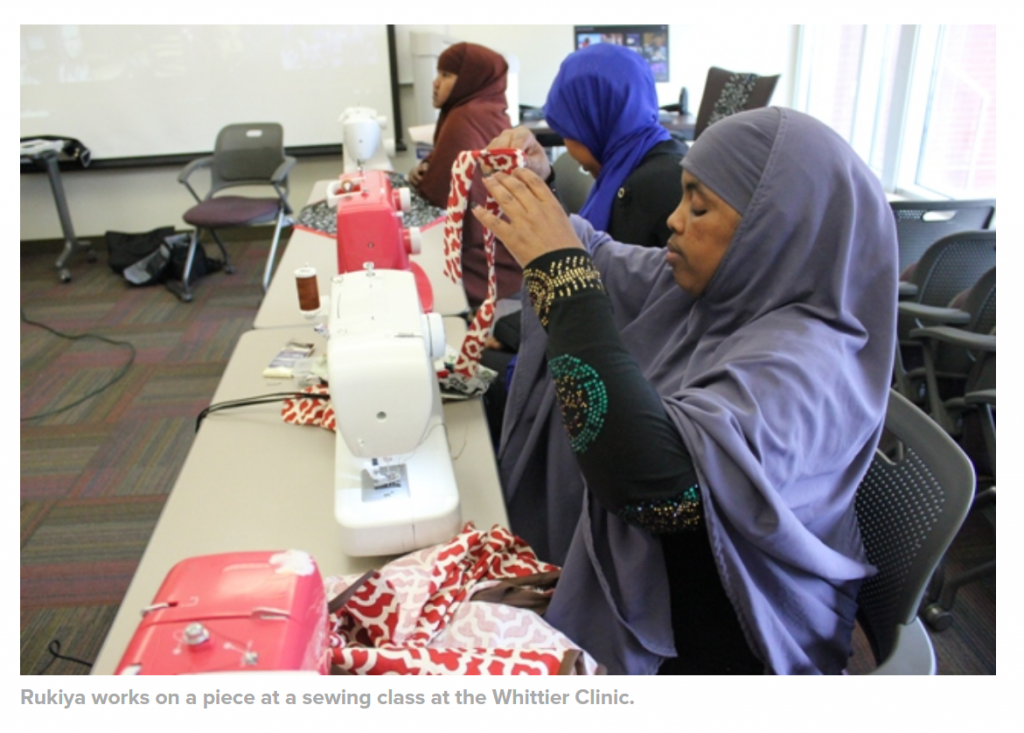
REAL SIMPLE MAGAZINE
